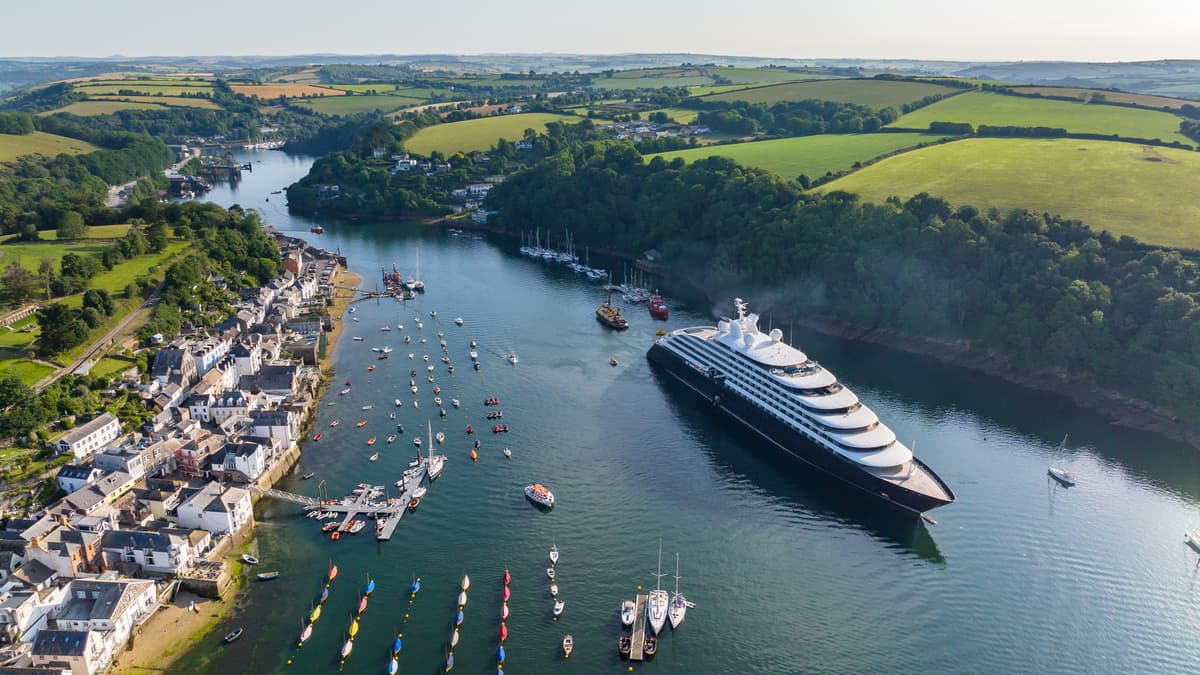
An Expert Guide to Navigating UK Waters with a Superyacht
The United Kingdom remains a top-tier destination for superyachts, offering a rich blend of dramatic coastlines, deep maritime tradition, and seamless access to global cities like London, Southampton, and Edinburgh. Whether cruising the Hebridean seascapes or participating in prestigious regattas such as Cowes Week or anchoring near the Monaco Grand Prix, the UK delivers an exceptional experience for owners, guests, and professional crew alike.
But before making way for British waters, captains must prepare thoroughly to ensure a compliant, efficient, and rewarding visit. This guide outlines the critical operational, legal, and logistical factors every superyacht captain and management team must address when entering the UK.
1. Customs & Immigration: Legal Entry and Compliance
UK Border Control and HMRC enforce strict entry requirements for foreign-flagged vessels. Failure to comply can result in fines, delays, or refusal of entry—so preparation is essential.
Customs Declarations
All yachts arriving in the UK, whether from the EU or international waters, must be declared to HMRC. This involves:
• Completing C1331 forms (for non-commercial vessels)
• Declaring all dutiable goods onboard, including alcohol, tobacco, or luxury items
• Providing passenger and crew lists ahead of arrival
It’s advisable to notify the National Yachtline prior to your approach, especially if coming from outside the Common Travel Area.
Immigration and Crew Visas
Crew members must comply with UK immigration law. Depending on nationality and employment status, visas or permits may be required. Notably:
• Yacht crew from non-visa waiver countries must obtain the Standard Visitor Visa (Yacht Crew category)
• Seafarers may enter under the Transit Without Visa (TWOV) scheme if conditions are met
Captains should work closely with their management company or legal advisor to assess each crew member’s status before departure.
Temporary Admission (TA)
Under UK customs reliefs, privately operated yachts not based in the UK can be imported temporarily without paying VAT or customs duties, provided:
• The yacht remains in the UK no longer than 18 months
• It is used solely for private, non-commercial purposes
• A formal declaration is submitted upon entry
For vessels operating under commercial charter, different customs and tax rules apply.
2. Berthing and Port Planning: Securing Space in Prime Locations
The UK hosts a diverse range of marinas and ports—from high-traffic hubs like Ocean Village in Southampton to remote anchorages in the Scottish Highlands. But capacity is limited, particularly during key events.
Advance Reservations
Popular destinations—such as St. Katharine Docks in London, Cowes, and Falmouth—fill up quickly. Berth bookings should be made months in advance during peak seasons or major events.
Pro tip: Confirm berth dimensions, draft restrictions, shore power availability, and ISPS status before confirming moorage.
Marina Fees and Budgeting
Rates vary by location, yacht length, and duration. Expect premium pricing in high-profile marinas, particularly in London and during event weeks. Include:
• Daily or monthly mooring charges
• Utility fees (power, water, Wi-Fi)
• Waste disposal surcharges
Some marinas offer annual membership packages or discounts for longer stays—useful for yachts using the UK as a summer base.
Onshore Support
Ensure your marina of choice offers:
• Fuel bunkering facilities
• Technical services and spare parts
• Provisioning and crew logistics
• Secure guest access and concierge-level amenities
Elite marinas like Port Solent or Gunwharf Quays offer a comprehensive infrastructure for both vessel maintenance and guest comfort.
3. Regulatory Compliance: Safety and Vessel Readiness
The UK Maritime and Coastguard Agency (MCA) maintains high standards for vessel safety and compliance. Yachts entering UK waters may be subject to inspection, especially if flagged under Red Ensign Group regulations.
Required Equipment
Before arrival, verify that your vessel is compliant with:
• SOLAS safety equipment (life rafts, jackets, fire suppression, EPIRBs)
• Updated charts and navigational systems
• Records of ISM/ISPS compliance (for commercial yachts)
Crews should be trained and briefed on UK maritime safety procedures, including man-overboard drills and pollution prevention protocols.
4. Environmental Protection: Yachting with Responsibility
The UK enforces rigorous environmental standards, particularly in marine conservation zones, national parks, and heritage coastlines.
Waste Management
Vessels must comply with MARPOL Annex IV and V standards. Ensure:
• Black and grey water systems are operational and certified
• Waste is stored and offloaded at designated reception facilities
• Oil and bilge management procedures are logged and traceable
Discharge of untreated sewage or oily water is strictly prohibited in most UK waters.
Emissions & Noise
There are increasing restrictions on emissions—particularly NOx and SOx levels—in sensitive areas. Hybrid or low-emission vessels may gain preferred anchorage in some marine parks. Noise abatement is also expected near residential shorelines.
5. Refueling and Provisioning: Supply Chain Strategy
Though the UK is well-equipped with modern infrastructure, pre-planning remains crucial for smooth onboard operations.
Fuel Planning
Marine diesel is widely available, but prices and biofuel blends vary. Inquire about:
• Duty-free bunkering (for eligible vessels under TA)
• Quality certifications
• Delivery options to remote anchorages
Use local agents or marina networks to secure timely refueling.
Provisioning
From artisan cheese in Devon to fine wines in Mayfair, the UK offers top-tier provisioning. However, captains should place orders in advance for:
• Specialty dietary items
• Internationally-sourced ingredients
• Last-minute requests for events or charters
Yacht agents and concierge providers can streamline logistics, customs clearance, and delivery.
Precision-Driven Yacht Support
What distinguishes world-class yachting operations in the UK is the ability to manage complexity without compromise. From legal compliance and operational logistics to provisioning and guest service, attention to detail defines the standard.
At Priavo Yachting, we specialize in high-performance support for vessels entering UK waters—managing customs declarations, berthing, refueling, crewing logistics, and VIP experiences. Every itinerary is curated with precision to meet your operational requirements and exceed guest expectations.
For tailored assistance and end-to-end support, contact us at operations@priavoyachting.com or visit www.priavoyachting.com.
